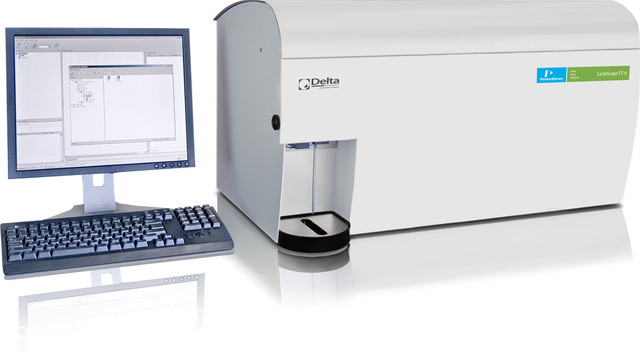Economists assessed the potential for the recovery of real incomes of Russians

Recovery of real disposable incomes of Russians after the collapse due to the pandemic crisis will be slow - at best, they will increase by 2% in 2021 after a decline of 5% this year, Alfa-Bank chief economist Natalia Orlova wrote in a review received by RBC.
Indeed, there are no prerequisites for a quick recovery, after a slight rebound in 2021, there is a significant risk of stagnation in real disposable income, which could not return to the pre-crisis level of 2013, warns Natalya Akindinova, DIRECTOR of the Institute for Development Center at the Higher School of Economics.
Alfa-Bank's forecast is more pessimistic than the official forecast of the Ministry of Economic Development, which believes that real incomes will fall by 3% in 2020, grow by the same 3% in 2021, and then grow by 2.4-2.5%.
Real disposable money income of the population is money income minus obligatory payments (taxes and fees, interest on loans, etc.), adjusted for inflation. From 2014 to 2017, they continuously decreased, in 2018 they showed near-zero growth (+0.1%), and at the end of 2019 they increased by 1% in annual terms. By the end of the third quarter of 2020, real disposable income was 11% lower than in 2013 (the last year of strong household income growth).
Read together with it:
- The IEA sees a risk of a decline in oil production in Russia due to sanctions.The IEA sees a risk of reduced oil production in RUSSIA due to US sanctions , but maintains its production forecast. According to the IEA, Russian oil exports will remain unchanged.There is a "significant downside risk" to Russia's oil production forecast due to US sanctions, the International Energy Agency (IEA) said in a report.BLOOMBERG . The agency's experts believe that the latest US sanction...
- UniCredit заявил о галактических усилиях из-за санкций против РоссииUniCredit старается не нарушить «более 15 тыс. санкций», а также не «совершать ошибки», которые позволят изъять его активы в России, заявил гендиректор. После начала военной операции банк начал рассматривать возможность ухода Итальянский банк UniCredit прилагает «галактические усилия», пытаясь соблюсти международные санкции в отношении своего российского подразделения. Об этом заявил генеральный д...
- "Коллективы АПК способны решать любые задачи даже в непростых условиях". Назаров о заслугах сельхозпроизводителейЮрий Назаров 13 ноября, Минск. Обеспечение продовольственной безопасности страны - большое достижение трудовых коллективов аграриев, отметил управляющий делами Президента Республики Беларусь Юрий Назаров на торжественной церемонии награждения государственными и иными наградами работников АПК Управления делами Президента Республики Беларусь, передает корреспондент БЕЛТА. Торжественная церемония наг...
- Russian agriculture: self-sufficiency continues to growThe industry has a track record of implementing new technologies and increasing productivity. RUSSIA is already confidently self-sufficient in grain, MEAT, fish, vegetable oil, and SUGAR. Grain and vegetable production is also forecast to be higher this year, despite unfavorable weather conditions in some regions. The Ministry expects historic highs for some crops and continues to support agricult...
- Колумбия: При экспорте скота сертификация и прослеживаемость больше не являются необязательнымиВысококачественное животноводство, особенно при экспорте, требует сертификации и прослеживаемости. Это необходимые условия для выхода и конкуренции на многих международных рынках, а также на некоторых всё более требовательных внутренних рынках. Колумбийское животноводство не является исключением из этих правил, и, хотя предстоит ещё многое сделать, всё большее число ферм и компаний внедряют эти ме...
- США объяснили снятие санкций с проекта АЭС в Венгрии с участием РоссииСША хотят, чтобы строительство АЭС «Пакш-2» завершилось, это необходимо, чтобы Венгрия стала энергетически независимой, заявил Рубио. Орбан сообщал, что после встречи с Трампом добился исключения из санкций Соединенные Штаты вывели из-под санкций проект АЭС «Пакш-2» в Венгрии, подтвердил госсекретарь Марко Рубио после встречи министров иностранных дел стран G7 в Канаде. Ранее об этом говорил венге...
- Pharmaceutical companies see a threat to EU security due to bacteria in UkraineAntibiotic-resistant superbugs have been detected in Ukrainian soldiers since the beginning of the conflict, and now they pose a threat to Europe, according to a foundation developing antibiotics.The Ukrainian conflict threatens Europe with antibiotic-resistant "superbugs," said Henry Skinner, CEO of the AMR Action Fund, which specializes in investing in antimicrobials. His article was published o...



























































